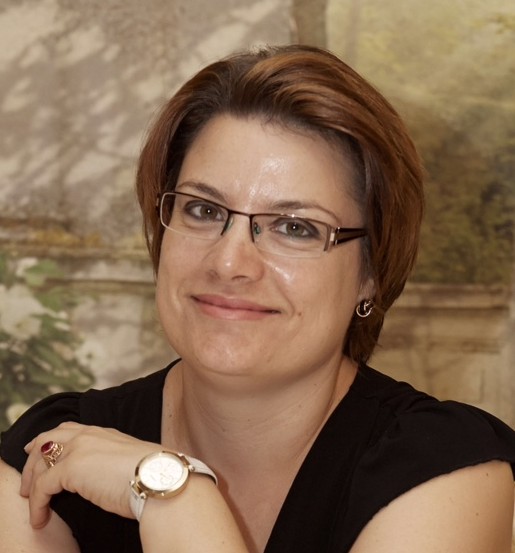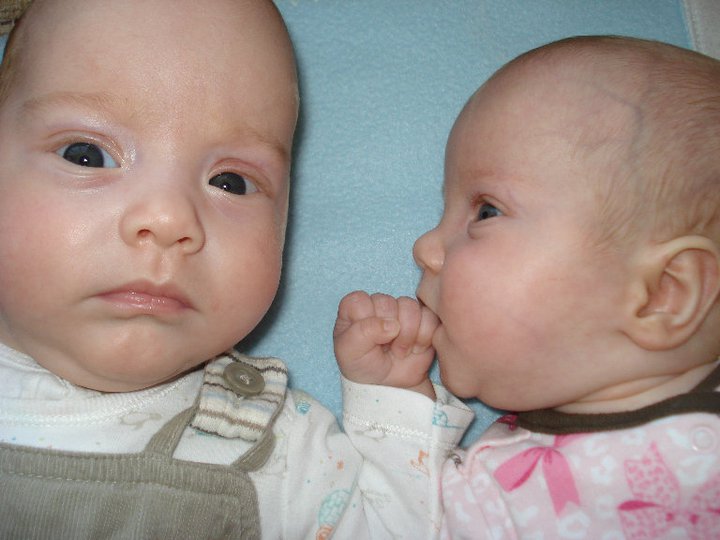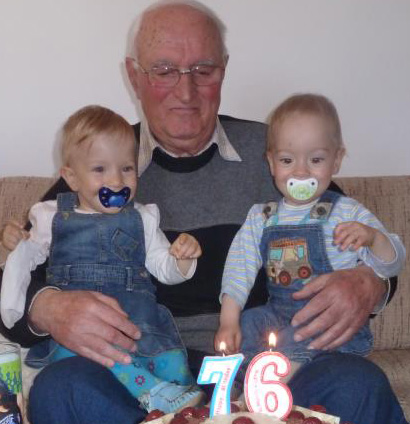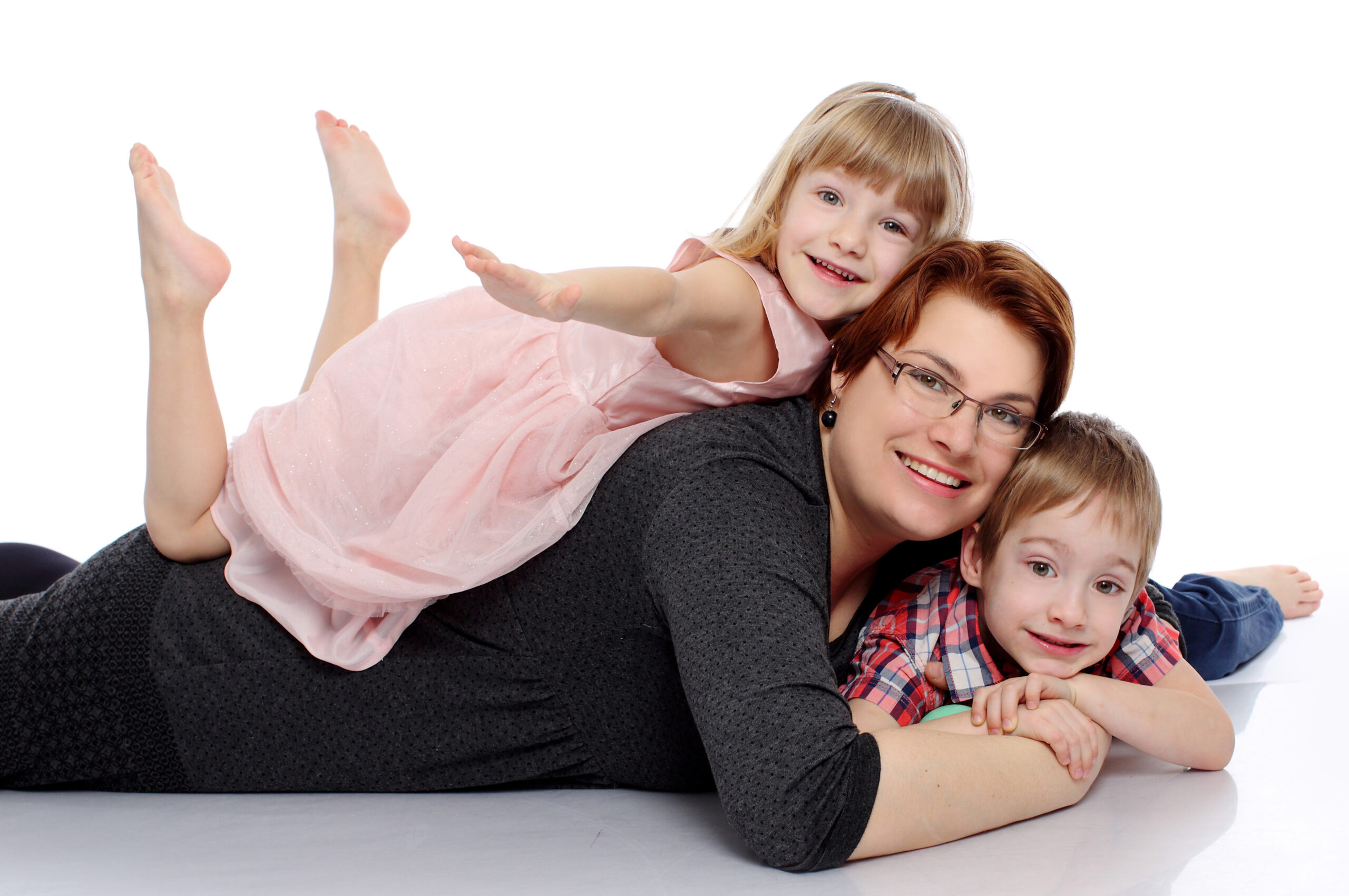
In 2008, following the deaths of my children, I went home from the hospital feeling empty and broken-hearted. I simply wanted to close my eyes and die. I physically appeared to look pregnant and friends continued to enquire after the well being of my babies. I did not have the mental strength to deal with the reality of the situation and my husband was left to field the well-meant enquiries.
A number of months later we decided that we were strong enough to try for another pregnancy. The desire to have a family was so strong yet despite not being emotionally ready, we found the strength to embark on another pregnancy journey. Unfortunately the ICSI attempt failed and we had to face the stark reality of waiting for 12 months before we could try again (in Bulgaria families must wait 12 months between fertilization attempts).
Returning to work proved more difficult than I anticipated. While my friends and colleagues so dearly wanted to support and help me, they didn’t know how to speak with me, what questions to ask, or what I needed to help me in my grief.
It took the best part of a year to return to my former self, but I yearned to have children and life was incomplete without a family. I longed to feel happiness again and I longed to have children in my life… and so we embarked on our 4th ICSI fertilization attempt.
On one of our national Christian holidays, Blagoveshtenie, when we deliver good news to people, we discovered that our ICSI attempt had been successful. We were overcome with joy to discover that we had four fertilized eggs. Given the difficulties that we encountered with our first pregnancy, where we first implanted three embryos but took the decision to remove one to provide the remaining two a better chance of surviving, we decided to proceed with a twin pregnancy on this occasion.
I was confined to home during the pregnancy and was closely monitored by my medical team. I was required to take medication and inject daily in order to keep the pregnancy healthy. Instead of feeling the joy of carrying my babies in my womb, my days were spent crossing off days on a calendar, counting days, and praying so hard that my babies would stay safe.
During the third month I began to bleed very heavily and was hospitalized for one month, but no underlying cause was found for the bleeding. I opted to obtain the opinion of another doctor where it was discovered that I was carrying a third embryo that had died inside of my womb. The existence of this embryo was placing the well-being of my babies at risk, and the threat of infection that may lead to preterm labor was becoming a greater threat.
At six months my blood pressure began to become a concern to my medical team and I was referred to a cardiologist for treatment.
On a beautiful sunny September 9th, I visited my gynecologist for a routine checkup and was assured that the pregnancy was healthy. However less than 24 hours later at week 29 of my pregnancy, my waters broke and I knew that I would soon meet my babies. Strangely, I didn’t have any fear on this occasion; something I cannot explain. Perhaps given the pain that we had suffered in the past, I felt that my angel babies would keep us all safe.
Given the high risk nature of the pregnancy and ever rising blood pressure, the decision to deliver my babies by Caesarean Section was made by my medical team. A little part of me still felt this overwhelming fear at what could happen and tears flowed inside for the babies I had lost. We had been on this road before and I wasn’t sure if I had the strength to come home childless again.
Baby Martin was born at 11 a.m. on September 11th weighing 1170 grams followed two minutes later by his sister Joana who weighed 930 grams. After a quick introduction to my babies they were taken away from me to be cared for by medical professionals. However in comparison to our previous experience, I felt different on this occasion; somehow I knew that the outcome would be favorable and sure enough, the experience couldn’t have been more different. I was encouraged to express milk (but there wasn’t a specific room for me to do so), I was permitted to remain in the hospital for a longer period of time in order to be with my babies, and when they were strong enough I was actively encouraged to breastfeed.

Typically in Bulgaria, families are allowed to visit the babies in the NICU only few times a week, depends on the hospital. Since the hospital was a private hospital, I was allowed daily access for one hour. Martin made good progress during his three month period in the NICU, but Joana struggled. Four weeks after the birth, Joana’s doctor summoned us to a private meeting. With my only experience of such meetings ending in catastrophic news, I was understandably terrified. As Joana continued to struggle to progress from requiring CPAP and Oxygen support to breathe, I had convinced myself that the news about Joana would replicate that of our poor Alexandra. When the doctor disclosed that Joana had a fracture of her femur, I broke into laughter to a somewhat bemused physician. He would never understand the absolute relief that I felt that the news was not pertaining to Joana’s lung health. It was also discovered that Joana had only one kidney (not related to her prematurity). Shortly afterwards the doctors diagnosed Joana with rickets and she required Vitamin D injections intra-muscularly. As Vitamin D was not available in Bulgaria we had to order the medication from France and have it shipped to Bulgaria.

It would be two months before I could hold Martin and 72 days before I could hold Joana. My babies were cared for in a very bright environment devoid of any signs of developmental care, a topic that I would only learn about many years after their birth. Kangaroo Mother Care wasn’t allowed in our unit because the doctors don’t want to accept it yet.
On the 30th of November Martin was discharged from the NICU, and Joana followed four days later. After the initial euphoria of both babies surviving their premature birth, the shock of having them home, without the support of the medical team overwhelmed us. There is no long-term follow up support in Bulgaria following discharge and after one home visit from our general practitioner, we were left to our own devices to care for our infants alone. We also were financially burdened after discharge and required to pay €4000 to the hospital to cover some of the cost of their care in the NICU.

Struggling to come to terms with the way our health system cares for premature babies and their families, I, along with two parents whom I met while in the NICU, Nadya and Violeta, decided to create a foundation that would advocate for improved care and outcomes in our country. Our Premature Babies was founded in March 2012 and we are now the largest organization in Bulgaria to represent the needs of families of preterm infants. Through our international networks we have identified the short comings in our health systems, the greatest one is the lack of family centered care. We work closely with international organizations, such as the NIDCAP Federation International, in our efforts to introduce scientifically proven methods of care to the Bulgarian neonatal care system and we continue to be the voice of the newborns.
– Nina Nikolova
Chairwoman and Co-Founder of Our Premature Children Foundation, Bulgaria
Member, Parent Advisory Council, NIDCAP Federation International, Inc.
Sales Manager, Bulgarian Land Development
